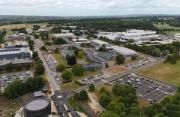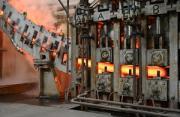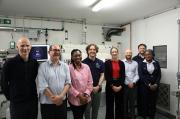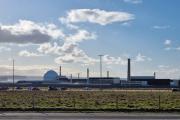NORTH MSP CALLS FOR ACTION IN POST-DOUNREAY ERA
16th August 2007
Highlands and Islands regional Labour MSP David Stewart has called for action on the Caithness economy following a visit to Dounreay.
Mr Stewart said, "I had a useful and informative visit to Dounreay and met with trade union representatives and Dounreay Director Simon Middlemass. The main issue raised was job diversification in the post-Dounreay era. Those I met expressed a sense of urgency for the future particularly as in 2012 several hundred jobs are scheduled to go at the plant."
"It is clear the central issue of concern is the need to retain and utilise the level of skills the present Dounreay workers have. I am a particularly concerned about young people leaving Dounreay and going off shore to find work in the oil industry. We need to keep our workers in the county. There must be urgent investment in the Caithness economy in a long-term and sustainable way. A new sense of urgency is required and I will be meeting with Sandy Cumming, HIE's Chief Executive at the end of the month. I am also hoping that HIE's Inward Investment Manager Roy Kirk will be able to attend. Dounreay will be top of the agenda for the meeting."
Mr Stewart added, "Since the fifties Dounreay has been central to the Caithness economy and has provided many long-term jobs and helped secure the population base. Dounreay has a skilled, dedicated and professional workforce which is well positioned to react to the challenges of diversification, in new projects, such as tidal energy in the Pentland Firth or oil rig recycling."
"What is urgently needed now is a new vision on how the economy can be diversified for the future. There is no more important issue for Caithness at this time."
Related Businesses
Related Articles
UKAEA develops 3D printing for fusion components
At its recently opened Central Support Facility (CSF), UKAEA has commissioned an electron beam additive manufacturing machine that can be used to incorporate tungsten into components, alongside a selective laser manufacturing machine. Fusion can play a key role in a global low carbon energy future.Advancing Fusion Remote Maintenance: Industry Collaboration Driving Innovation
As part of the Fusion Futures (FF) programme, UKAEA's Remote Applications in Challenging Environments (RACE) has partnered with industry leaders to develop two groundbreaking technologies for remote maintenance in fusion energy engineering. Thanks to FF funding, industry has taken the lead in maturing UKAEA technology concepts—delivering real-world solutions that enhance operational autonomy and reduce maintenance burdens in extreme environments.UKAEA launches International Fellowships Scheme for fusion
UKAEA has launched the International Fellowships Scheme, an initiative to help expand the global talent pool supporting the fusion industry. The scheme is part of the UKAEA's Fusion Opportunities in Skills, Training, Education and Research (FOSTER) Programme, which aims to train, support, and empower the next generation of professionals, who will help deliver fusion power to the grid.Kyoto Fusioneering and Astral Systems join Culham fusion hub
UKAEA's Culham Campus welcomes Kyoto Fusioneering and Astral Systems as its latest tenants. Two pioneering companies, Kyoto Fusioneering and Astral Systems, have joined the growing cluster of fusion technology and AI organisations at United Kingdom Atomic Energy Authority's (UKAEA) Culham Campus.
Fusion-grade Steel Produced At Scale In UK-first
Researchers achieve 10x production cost savings for reduced activation steel. A United Kingdom Atomic Energy Authority (UKAEA) working group has successfully demonstrated the industrial scale production of fusion-grade steel.
UKAEA To Lead The Creation Of A Robotics And AI Cluster
UKAEA will lead the creation of a new £4.9m nuclear robotics and artificial intelligence cluster across Cumbria and Oxfordshire. The robotics and AI cluster was announced by UK Research and Innovation (UKRI) as one of seven new projects to kickstart economic growth and address regional needs: www.ukri.org The robotics and AI cluster will link Cumbria and Oxfordshire to accelerate the decommissioning of the UK's legacy nuclear fission facilities and keep people out of hazardous environments.
Diamonds Are Forever? World-first Carbon-14 Diamond Battery Made In Uk
The world's first carbon-14 diamond has been produced with the potential to provide power for thousands of years. Scientists and engineers from the UK Atomic Energy Authority (UKAEA) and the University of Bristol have successfully created the world's first carbon-14 diamond battery.
UKAEA Monthly Newsletter Latest Edition
Find out what has been happening at UKAEA in our monthly newsletter. Read about our recent activities and upcoming events.
UKAEA Newsletter - Edition 11 Published Today
Find out what has been happening at UKAEA in our monthly newsletter. Read about our recent activities and upcoming events.
Corwm Visits Dounreay Nuclear Site
Members were given an overview of the scale of the problem and challenges faced in the decommissioning of the site. In the last week of March 2024, several members of CoRWM led by the Chair, Sir Nigel Thrift, made the long journey up to the North of Scotland to visit the Dounreay nuclear site, now managed by Nuclear Restoration Services.
